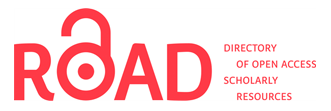Development of Fog Detector and pH Level Monitoring for Lobster’s Farming
Keywords:
Aquaculture, Water Quality, Arduino Uno, Internet of Things (IoT)Abstract
Aquaculture colloquially referred to as fish breeding, is the systematic raising of aquatic animals for human consumption as a primary source of protein. Fish farming can occur in various locales, including domestic tank systems. The fogging actions conducted by health officials frequently result in problems with the tank's water quality and adversely affect the livestock's growth. The project's primary goal is to design a system that can automatically shut down water pumps and notify farmers when sensors detect smoke, develop systems capable of monitoring water pH levels via mobile phones, and discuss the impact of fogging activity on livestock. The Arduino Uno and NodeMCU ESP8266 will serve as microcontrollers, while the project will use MQ-2 sensors, pH sensors, and sensor temperature. The MQ-2 sensor can detect high gas concentrations up to 2.4 metres away from its location. The pH levels of two different water samples were different: tap water and pesticide-contaminated water. Three independent temperature readings were taken with three different water samples: cold water, cool water, and hot water. The system in this project can be enhanced significantly by maximizing the use of Internet of Things (IoT) technology.







